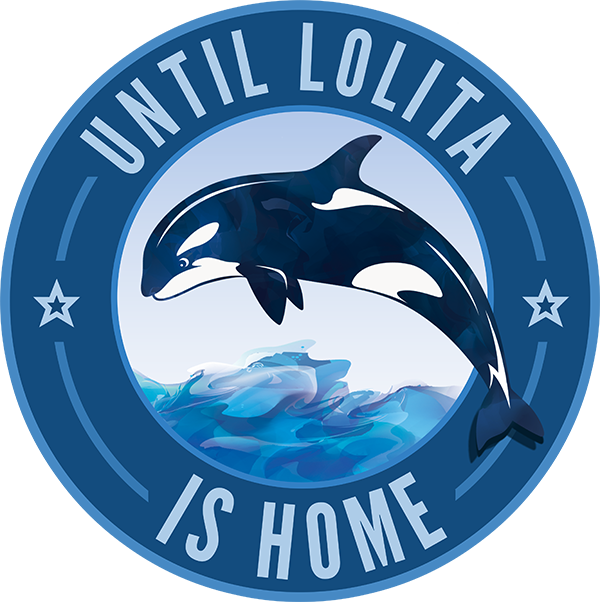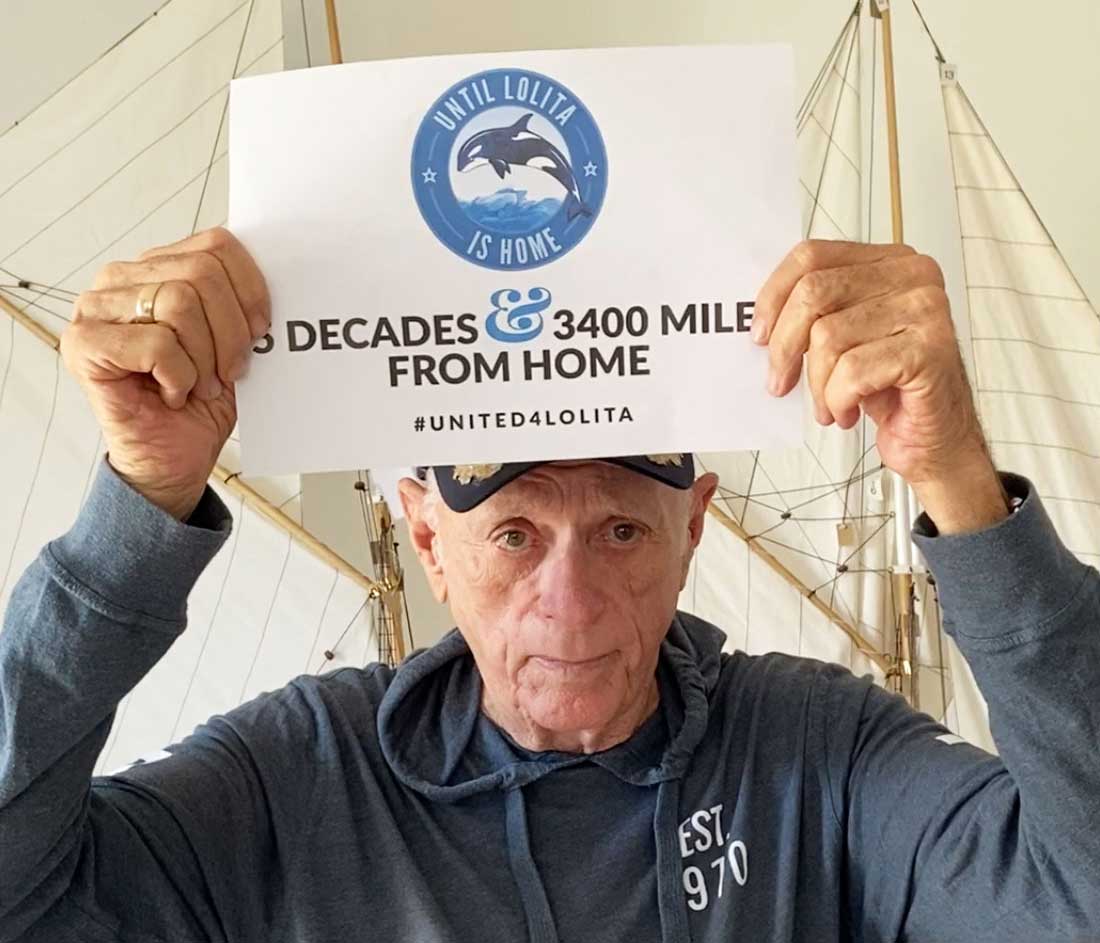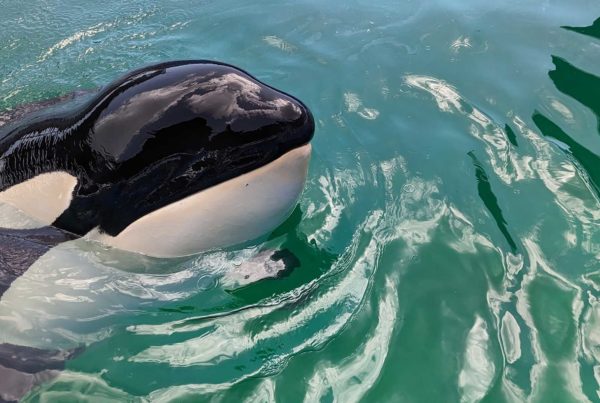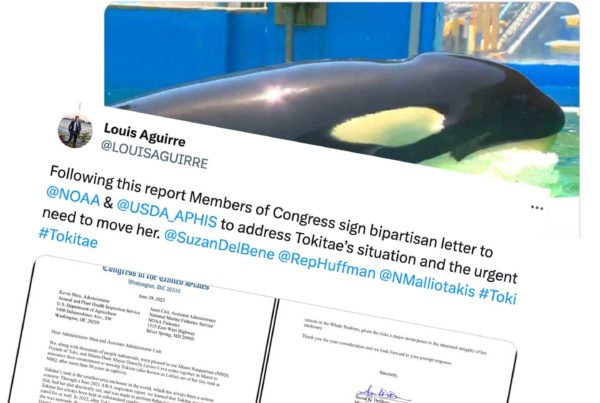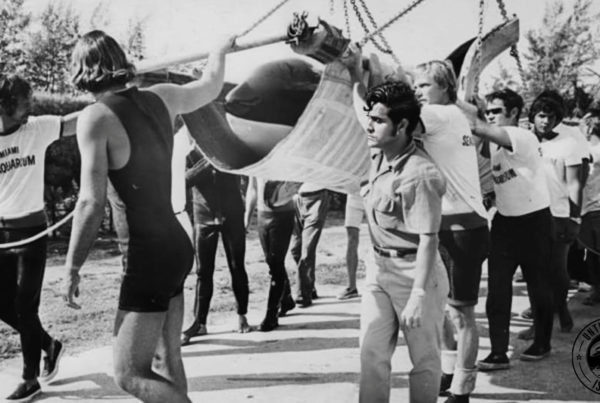August 8th, 2020 marked the 50th anniversary of Lolita’s capture. Today, she is still held in the smallest orca tank in North America.
Lolita was captured on August 8, 1970 in Penn Cove, Whidbey Island. She was one of seven young orca sold to marine parks around the world from the roundup of over 80 orcas conducted by Ted Griffin and Don Goldsberry, partners in a capture operation known as Namu, Inc.
Using speedboats and releasing explosives in the water, they forced the orcas into Penn Cove. Babies were separated from their mothers who would not leave their children. Piercing, screaming vocalizations were heard incessantly both above and below water. Five whales, including four calves, drowned during this capture. The calves had their bellies slit, filled with rocks, and weighted with chains and anchors to keep their deaths from coming to the attention of the public.
In mid-November a trawler dragged their bodies into its net. The captain of the fishing boat deposited them onto a beach in front of a Seattle newspaper reporter, and the story was immediately told to the world. Six years later this discovery played a major role in a court decision that banned Sea World from ever capturing another killer whale in Washington State.
A summary of “Tokitae remembers her home and family” by Howard Garrett
Dr. Jesse White chose her because, he said, she was “so courageous, and yet so gentle.” He named her Tokitae (TOE-Key-Tie) a coastal Salish greeting meaning “nice day, pretty colors.” She truly is unfathomably courageous and gentle.
She waits, alone and confined in concrete, all day and all night except for shows and brief playtimes. How does she persevere? How does Toki maintain her endurance, her gracious compliance, her sanity?
All the other 50+ orcas delivered to theme parks from the Salish Sea before 1976 had died by 1987. Hugo effectively committed suicide in the tank with her, yet she is still going strong to this day.
Did she learn her patient character and self-control from her mother and family? Tokitae learned very young to be a member of her family, her culture, and community. That shared self is her experience and isn’t forgotten, even after fifty years captive in a tank in Miami. She still knows who she really is, and how to be a Southern Resident orca.
If/when she returns home it won’t only give her a chance to have her life back. The eyes of the world will be on her. And we may all learn who she really is.
Together we are #United4Lolita
Drone footage captured on May 10th shows Tokitae/Lolita languishing in her barren tank. This type of footage validates the inadequate size of her surroundings. Just imagine having to exist here for 50 years! This is NOT living this is surviving, only her wonderful spirit has kept her alive. It’s shameful and it’s heartbreaking! There’s a comprehensive retirement plan waiting if only they would let her go. Enough is enough Miami Seaquarium. Enough is enough.
Footage by @arthusboucard_
@untillolitaishome
Until Lolita is Home petition featured on CTV NewsThis is great to see! On Saturday Canadian Orca Rescue Society were interviewed on CTV News whilst raising awareness for Lolita/Tokitae. The Until Lolita is Home petition was also featured! Please keep signing and sharing. Thank you #United4Lolita SIGN: http://chng.it/VwTpsKNTvw #UntilLolitaisHome
Posted by Until Lolita is Home on Monday, 10 August 2020
